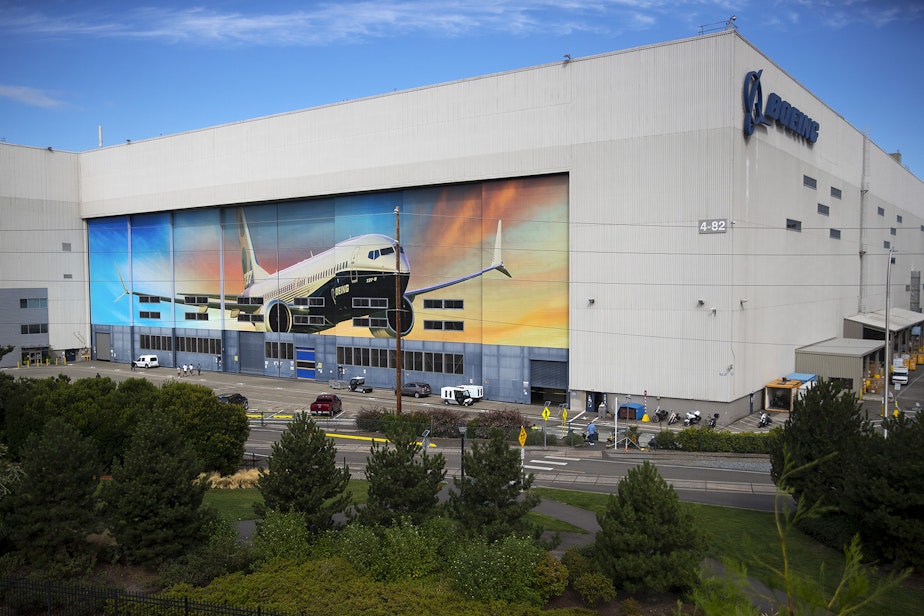Boeing announces a 737 Max leadership shake-up. Will it be enough?

Boeing has announced a leadership shake-up on its 737 Max team: Ed Clark, the head of Boeing's 737 Max program, is leaving immediately.
And according to reporting from The Seattle Times, Michael D'Ambrose, the company's executive vice president of human resources and a member of the top leadership executive council, will retire this summer.
These changes come more than six weeks after a piece of the fuselage broke off mid-air on a Max 9 plane, leaving a gaping hole in the jet and terrifying passengers minutes after takeoff from Portland.
The fallout and scrutiny over the safety practices continues, and according to New York Times reporter Niraj Chokshi, Clark's departure is just the latest chapter in a bumpy history for the position.
"He was he was the fifth person to hold the position since 2018," Chokshi said.
Sponsored
When Clark took over the position in 2018, Chokshi says he was a "cleanup guy" tasked with handling serious safety concerns following Max 8 crashes in 2018 and 2019.
Now, as the company faces the fallout of a new scandal and growing public scrutiny, Boeing is being asked to look inward, says Richard Aboulafia, an aerospace industry analyst and managing director of AeroDynamic Advisory. While a leadership change could be considered a good move, it isn't enough to address the systemic issues plaguing the company, Aboulafia said.
"What's really needed is to understand the needs of the workforce and the supply chain and the supply chain's workforce, and the resources and processes they need moving forward," he said. "Creating a couple of new positions doesn't really touch upon that effort that management needs to engage in to understand these needs."
As Boeing leadership works on controlling its public image in the eyes of its customers, flyers, and government leaders, Chokshi says the company has "a lot of convincing to do."
"They need to really show that employees and the public and the [Federal Aviation Administration] and lawmakers that they're taking quality seriously," Chokshi said. "That it's something that they value, it's something that employees are able to speak up about, and will be listened to and won't be won't be punished for slowing things down."
Sponsored
Listen to the full interview with The New York Times reporter Niraj Chokshi and aerospace industry analyst Richard Aboulafia by clicking the play button at the top of the page.





